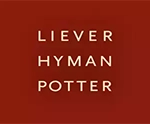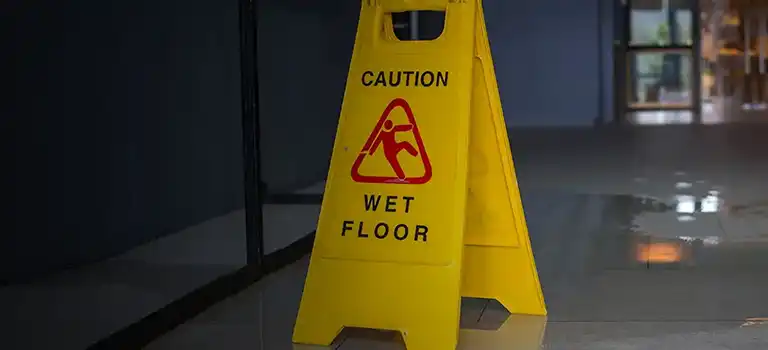Lawyers Who Fight For Justice With Your Premises / Product Liability Case
A possessor of land is required to exercise reasonable care with regard to the condition of his land and the activities he conducts on his land. Unfortunately, landowners and building owners don’t always adequately consider the safety of others, and as a result, people get hurt when they shouldn’t.
If you’ve been hurt in a trip and fall, slip and fall, or as the result of any dangerous activity or condition of buildings or land, give us a call right away to discuss your case. We can document the dangerous condition and investigate to see if prior accidents occurred. We can retain the appropriate experience to analyze what happened and prove the existence of an unsafe condition. In certain cases, we have obtained awards and settlements in the millions of dollars.
If you feel that you have such a case, contact Liever, Hyman & Potter as soon as possible. One of our experienced lawyers will be immediately available to protect your case, guide you through the entire process, and deal directly with the doctors, hospital, and insurance companies. You’ll pay us no money — not a cent — until we recover money for you, after which our contingent fee will be based on a percentage of the award or settlement that will be clearly defined in the initial agreement to represent you. Unlike most other law firms, our agreement says you will not have to repay any of the expenses we may have advanced on your behalf unless we recover money for you.
What Is Premises Liability and Product Liability?
Premises liability pertains to the responsibility property owners bear when maintaining safe conditions on their property. When a property owner’s negligence leads to someone being injured, it becomes a premises liability case. For example, if a visitor slips on an icy sidewalk or trips over clutter in a store, the property owner fails to uphold a duty of care, which may result in legal action.
Product liability, on the other hand, focuses on the accountability of manufacturers, distributors, and retailers for harm caused by defective products. If a consumer suffers injury due to a faulty product, this can lead to a product liability lawsuit. Imagine you hit the drive-thru for your usual coffee, grab a steaming cup, and head to work. But as you take a sip, searing hot liquid spills and scalds your tongue and hand. This seemingly ordinary situation could turn into a product liability case if the cup you were holding was defective.
Let’s say the coffee cup lid wasn’t properly secured due to a design defect, causing the entire cup to spill when you took a sip. The burns you sustained could be considered injuries caused by a defective product.
Common Types of Premises and Product Liability Accidents
Premises liability accidents can happen anywhere – from grocery stores and shopping malls to apartment buildings and private residences. Here are some common examples:
- Slips and falls: Wet floors, uneven surfaces, and poorly lit walkways are all potential hazards that could lead to a slip and fall accident.
- Negligent security: Property owners have a responsibility to provide reasonable security measures to protect visitors from criminal activity.
- Swimming pool accidents: Drowning and other pool-related injuries can occur due to inadequate fencing, missing safety equipment, or improper pool maintenance.
- Falling objects: Property owners must ensure shelves, fixtures, and other structures are secure to prevent items from falling and injuring someone.
Similarly, product liability accidents can involve a wide range of products. Some common types include:
- Defective design: A product might be inherently dangerous due to a flaw in its design.
- Manufacturing defects: Errors during the manufacturing process can create weaknesses or malfunctions in a product.
- Failure to warn: If a product lacks proper instructions or safety warnings, it could pose a hidden danger to consumers.
Property Owner Liability in Pennsylvania
In Pennsylvania, property owners owe a duty of care to maintain their premises safely for visitors. When a property owner fails to address hazards like icy walkways, loose handrails, or other dangerous conditions, they can be held liable for any resulting injuries. The law distinguishes between different types of visitors — invitees, licensees, and trespassers — with varying levels of responsibility owed to each. However, in most premises liability cases, the key factor is whether the property owner’s negligence directly caused the injury. Engaging experienced liability lawyers is crucial to navigating these complexities and ensuring fair compensation in personal injury claims.
What Is Considered a “Dangerous” Property Condition?
A “dangerous” property condition is one that poses a significant risk of harm to visitors. Such conditions include structural issues like broken stairs, unsecured flooring, or deteriorating handrails. Environmental factors also contribute, such as icy sidewalks, wet floors without warning signs, and poor lighting in high-traffic areas. Additionally, negligent security, like inadequate lighting or lack of surveillance in parking lots, can lead to assaults or thefts. Property owners must address these hazards promptly to prevent premises liability accidents. Failure to do so can lead to serious injuries and subsequent legal action, where premises liability attorneys advocate for the injured party’s rights.
What Are Some Product Defects?
Product defects fall into three main categories:
- Design Defects: Flaws in a product’s design that make it inherently unsafe, even before manufacturing.
- Manufacturing Defects: Errors during production that result in a product deviating from its intended design, making it dangerous.
- Marketing Defects: Inadequate instructions or warnings about proper use, leading to potential misuse and harm.
Each type of defect can cause significant injuries, ranging from minor cuts to life-threatening conditions. Liability attorneys can identify these defects and pursue justice against responsible parties.
A Premises Liability Lawyer will Help You Recoup Maximum Damages for Your Losses
A premises liability attorney plays a pivotal role in securing compensation for injuries sustained on someone else’s property. They scrutinize every detail of the incident, gather evidence, and build a compelling case to demonstrate the property owner’s negligence. Whether dealing with medical bills, lost wages, or pain and suffering, premises liability attorneys strive to recoup maximum damages. Their goal is to alleviate the financial burden on victims, allowing them to recover without worry. Working with a skilled premises liability lawyer ensures that your rights are protected and that you receive the full compensation you deserve.
Can I File a Premises Liability Claim if I Was Injured at My Workplace?
Yes, it is possible to file a premises liability claim if injured at your workplace. However, these cases often intersect with workers’ compensation claims. Workers’ compensation typically covers injuries sustained during employment, but if the injury resulted from a third party’s negligence, such as a contractor or equipment manufacturer, a separate premises liability case may be pursued. Handling these claims requires specialized knowledge, and consulting with experienced liability lawyers can clarify your options and maximize your compensation avenues.
Injured on Another Person’s Property? Injured From a Faulty Product? Liever, Hyman & Potter, P.C., Can Help
If you’ve suffered injuries on someone else’s property or from a defective product, the dedicated team at Liever, Hyman & Potter, P.C., is here to assist. Our firm specializes in premises liability cases and product liability, offering guidance to residents in Reading, PA, and surrounding areas. Check out our awards and settlements to see our proven track record in achieving favorable outcomes for our clients. Let our liability attorneys help you secure the justice and compensation you deserve.



